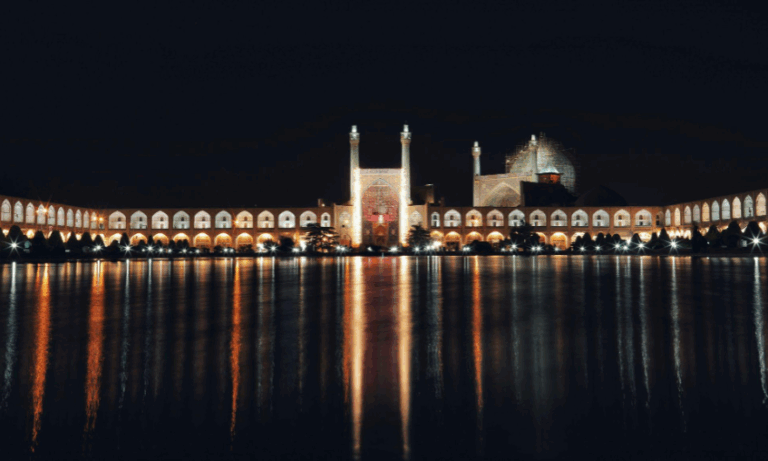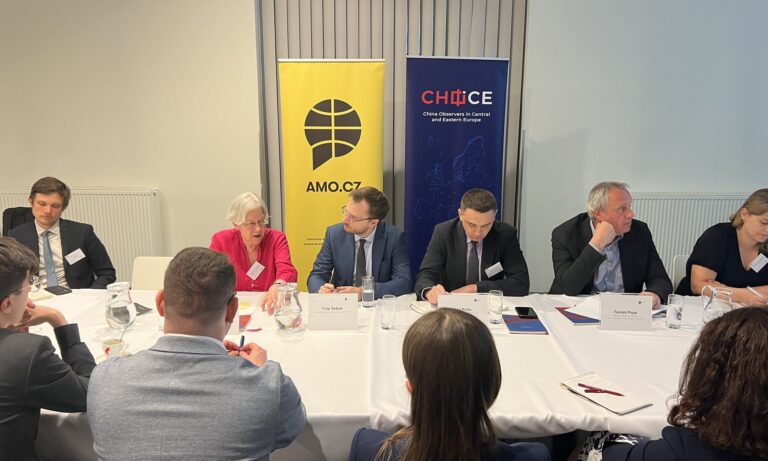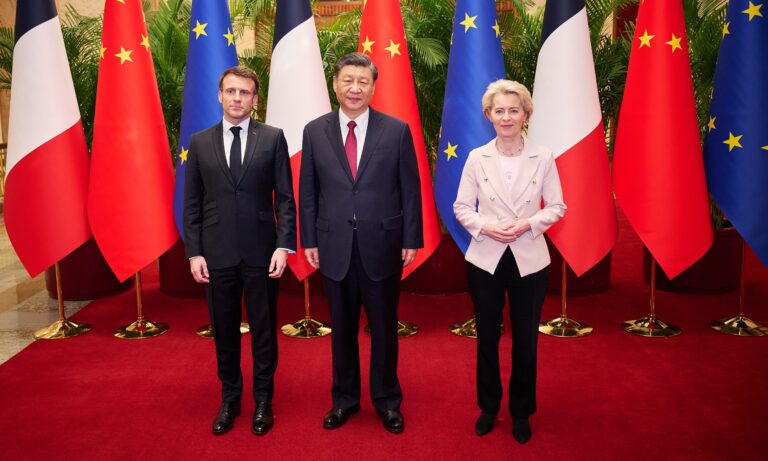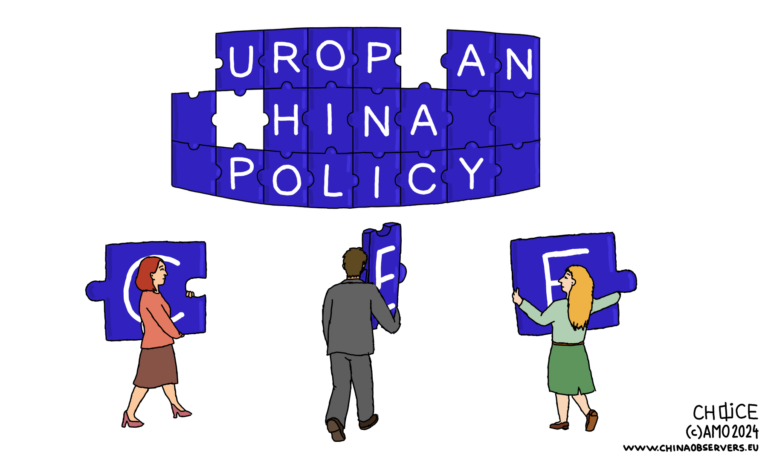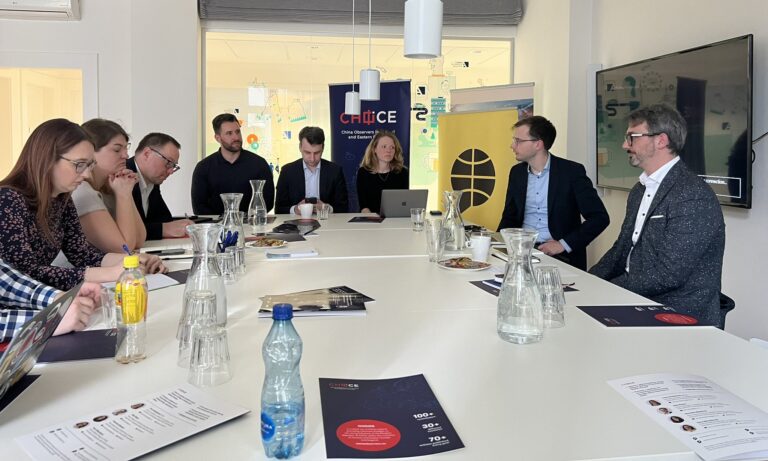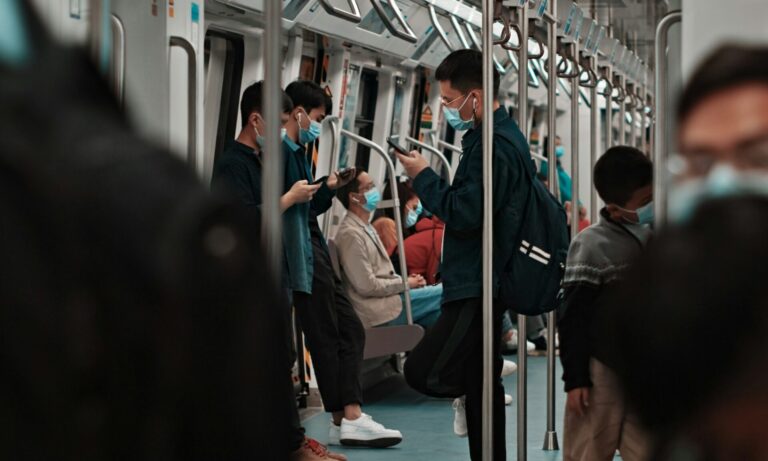#war
The Iran-Israel War and China: Global Ambitions, Limited Leverage?
This article is part of a series of articles authored by young, aspiring China scholars under the Future CHOICE initiative. With the Iran-Israel war ending in a fragile ceasefire, China faces a dilemma as an…
Panel Discussion: European Security in the Shadow of the Sino-Russian Entente
In June, as part of the Conference on Czech Eastern Policy hosted by the Association of International Affairs (AMO) in Prague, the CHOICE team organized a panel discussion on European security in light of…
Why the EU Must Keep Talking with China about Russia
It seems that recently, there have been growing doubts as to whether there is still a need to talk to China about Russia and their ‘no-limits’ friendship. This was noticeable during Scholz’s visit to China, whose request to Xi Jinping to put pressure on Putin to withdraw Russian troops from Ukraine was met with harsh criticism. While Scholz’s visit deserves to be scrutinized, mainly because his stance undermines the EU China agenda, including the German China strategy, his comments on Ukraine should not be assessed so negatively. Raising the Russia issue and asking China to put pressure on Putin is an important factor in the Western delicate deterrence-assurance game with Beijing.
The Missing Pieces? How CEE Can Contribute to a Stronger European Approach to China
This paper authored by CHOICE Research Fellows Ana Krstinovska, Alicja Bachulska and Una Aleksandra Bērziņa-Čerenkova seeks to answer the question of how Central and Eastern European (CEE) countries can use their experience and unique perspectives on relations with China to contribute to a more unified, competent, and self-confident European policy towards Beijing.
Closed Discussion: Sino-Russian Ties in the Context of the War in Ukraine
In March, the CHOICE project, with the support of the Prague office of Konrad-Adenauer-Stiftung, hosted a closed discussion in Prague with CHOICE Visiting Fellow and Post-Doc Researcher at the Austrian Institute for International Affairs…
Russia in the Eyes of the Chinese Social Media Users
The Chinese internet discourse reveals that while Russia is mostly supported in its war against Ukraine, the views of China’s northern neighbor are more diverse than usually recognized.
China Probes the Ground for Negotiations in the Russian-Ukrainian War
China has conducted a second round of shuttle diplomacy to “seek political settlement” to what it calls the “Ukrainian crisis.” Special Representative of the Chinese Government on Eurasian Affairs Li Hui visited Russia, the EU headquarters in Brussels and also Poland, Ukraine, Germany, and France, trying to gauge the outlook of a negotiated settlement – one that would favor Russia.
Year Two: Appraising Chinese Foreign Policy Towards the War in Ukraine
Two years into the war, China continues with its cautious and indirect support for Russia, while seeking to avoid damage to its own interests.
Will October Elections Change Poland’s Stance Towards China?
Poland is approaching parliamentary elections, which some deem one of the most important since 1989. The results could determine the focus of Warsaw’s foreign policy and its role on the international stage, especially within the EU. However, it seems that the vote will have little impact on Poland’s future stance toward China.
Voice for CHOICE #29: Sino-Polish Relations and Changing Polish Views on China with Alicja Bachulska
China’s tacit approval for the Russian invasion of Ukraine is significantly shaping both the Polish public opinion on China as well as the political and business elite’s perception of China. Although views still diverge…
Grain Deal Collapse Puts China’s Role in the Ukraine War under Scrutiny
Russia’s withdrawal from the Black Sea Grain Initiative, the shelling of the port infrastructure and the city Odesa that damaged China’s consulate have once again cast doubt on Ukraine’s hopes that China will play a constructive role in ending the war.
